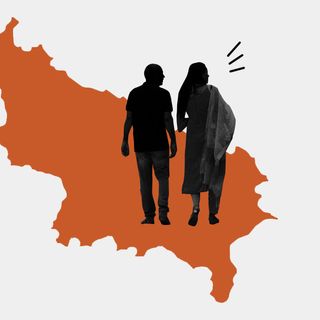The Covid19 vaccine race is on, and as far as India is concerned, the Oxford University-AstraZeneca partnership emerges as a clear frontrunner. On Monday, AstraZeneca announced its vaccine proved 90% effective in clinical trials. As compared to rivals such as Moderna and Pfizer — both of whom announced high efficacy rates for their own vaccine contenders earlier this month — the Oxford-AstraZeneca vaccine is cheaper to make and easier to store. Now, the partnership has announced it will make the vaccine available at a non-profit cost to low- and middle-income countries, meaning they will sell the vaccines for merely the price of production and won’t increase the price, no matter the demand.
This promise of accessibility and affordability is one experts have struggled with in the past few months, in light of vaccine nationalism enabling wealthier countries to pre-order millions of doses for their own populations. The problem of accessibility is exacerbated by a lack of health care infrastructure in poorer nations. It makes storing vaccines that require special cold-storage facilities (such as those developed by Pfizer and Moderna) difficult. As the world moves toward finally finding a way out of this pandemic, scientists have expressed concern over developing countries left in danger of not being able to protect their sizeable populations.
Enter the Oxford-AstraZeneca vaccine, which can be stored in any conventional fridge, has a shelf life of up to six months, and is already part of the World Health Organization’s Covax initiative, which aims to distribute approximately 2 billion doses to 92 developing countries, at a cost of no more than a few dollars.
Related on The Swaddle:
Effective Covid19 Vaccine in India Will Be Meaningless Without a Mass Immunization Strategy
AstraZeneca is also in partnership with the Serum Institute of India (SII), the arrangement between the two possibly giving rise to an additional 1 billion doses of the vaccine for Indians. “It’s very important we take care of our country first, then go on to Covax after that and then other bilateral deals with countries,” according to SII CEO Adar Poonawalla. He promised 100 million doses of the vaccine by January, and multiple hundreds million by February, NDTV reports.
Elaborating on cost, he told NDTV the vaccine would cost ₹1,000 per dose in private (the vaccine is to be administered in two doses), but the government will first buy 90% of the supply for ₹250 per dose. Government sources have already identified 1 crore healthcare workers who are set to receive the first dose of whichever vaccine is ready, which is increasingly looking like Oxford-AstraZeneca’s contender.
As for the larger population, Poonawalla added, “They will have to go to government distribution points and, if they are eligible, then they will get it. Otherwise, they have to wait till March … because the priority is to vaccine our most vulnerable.”




